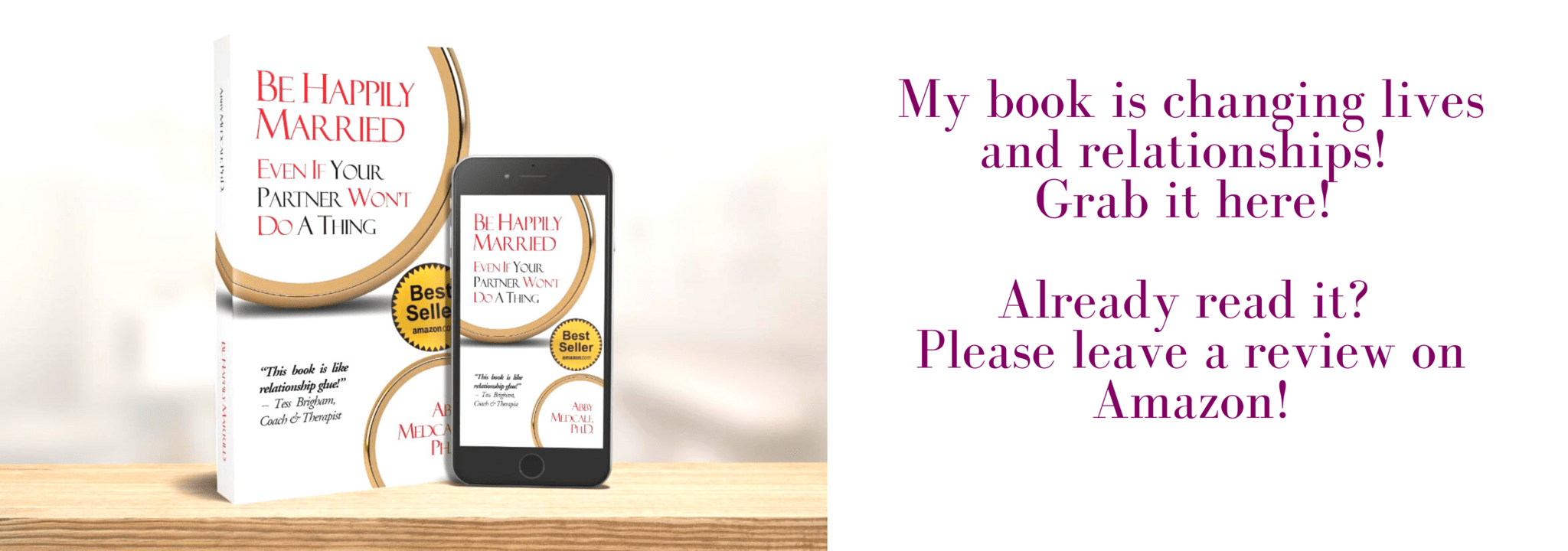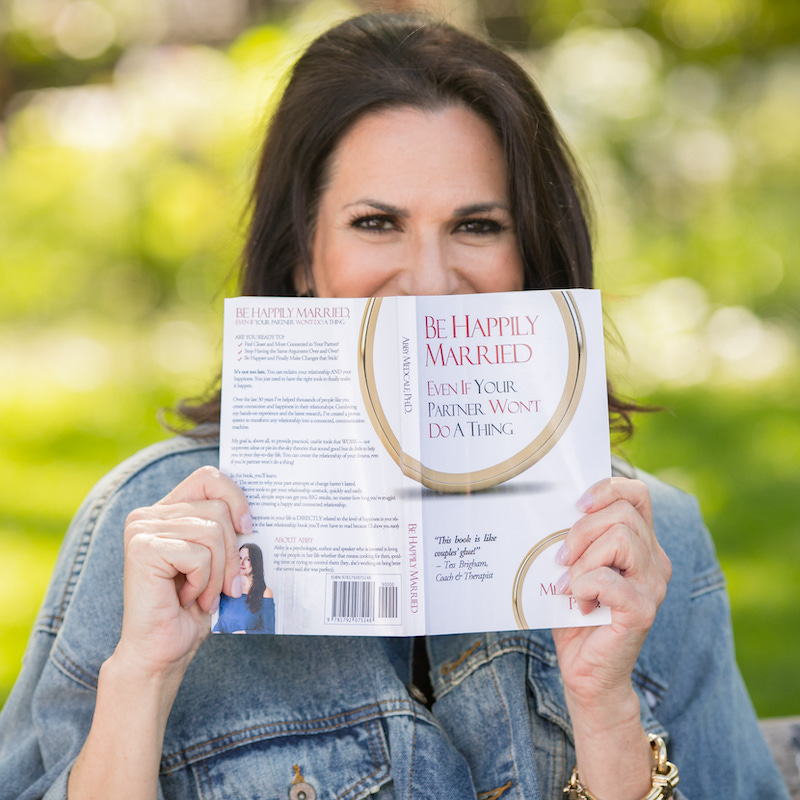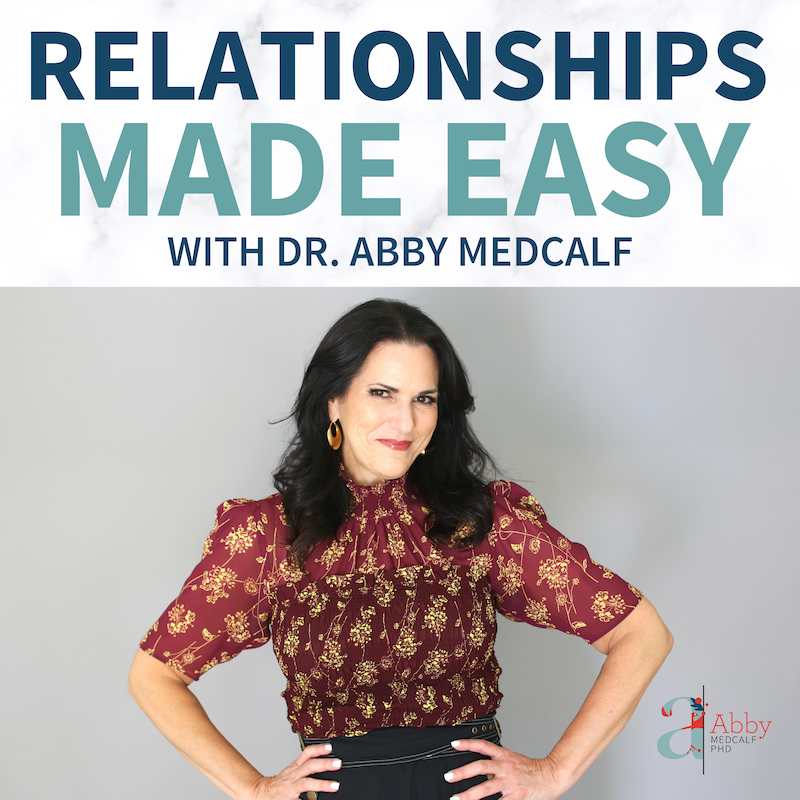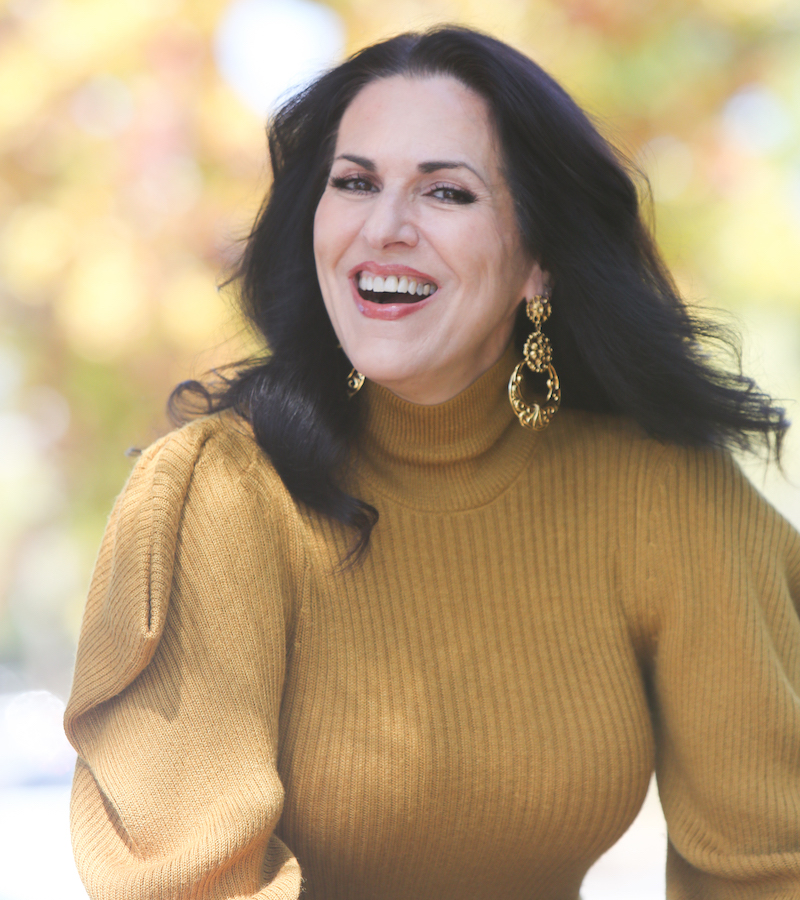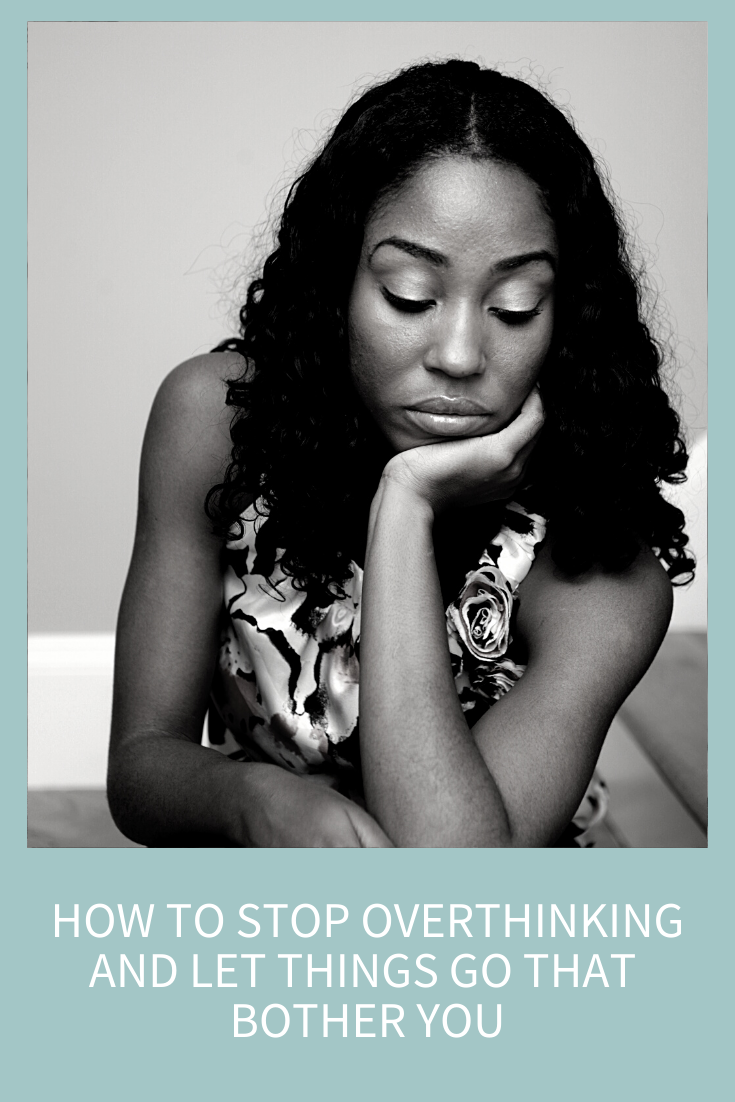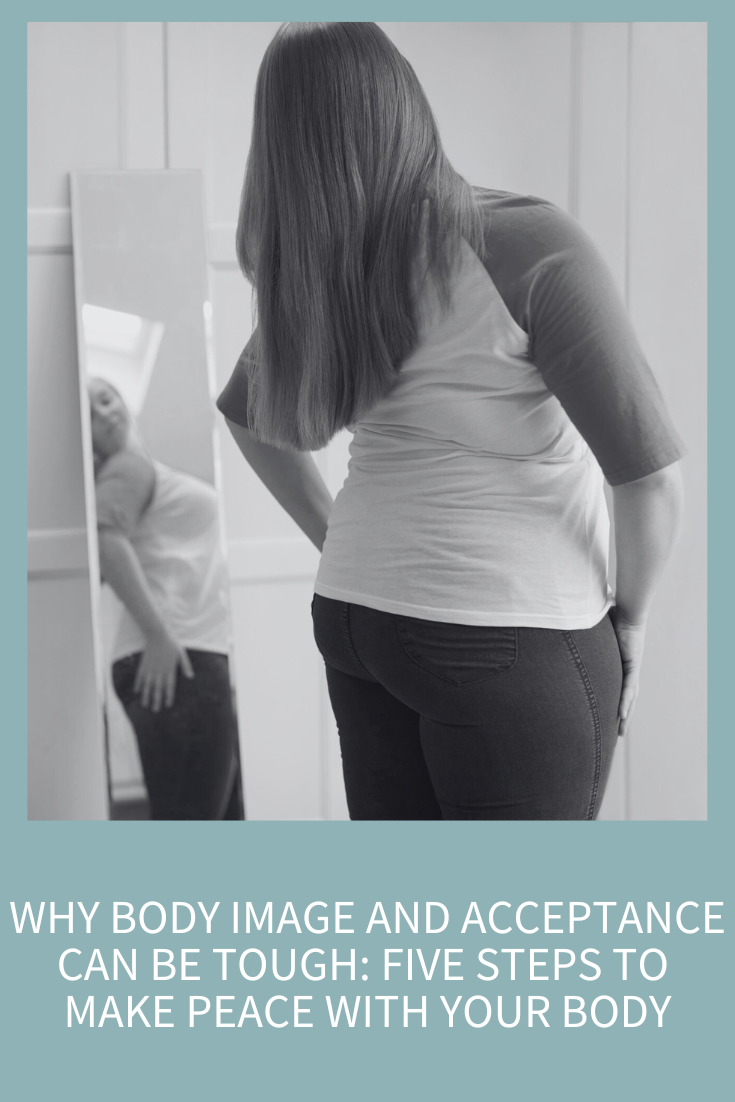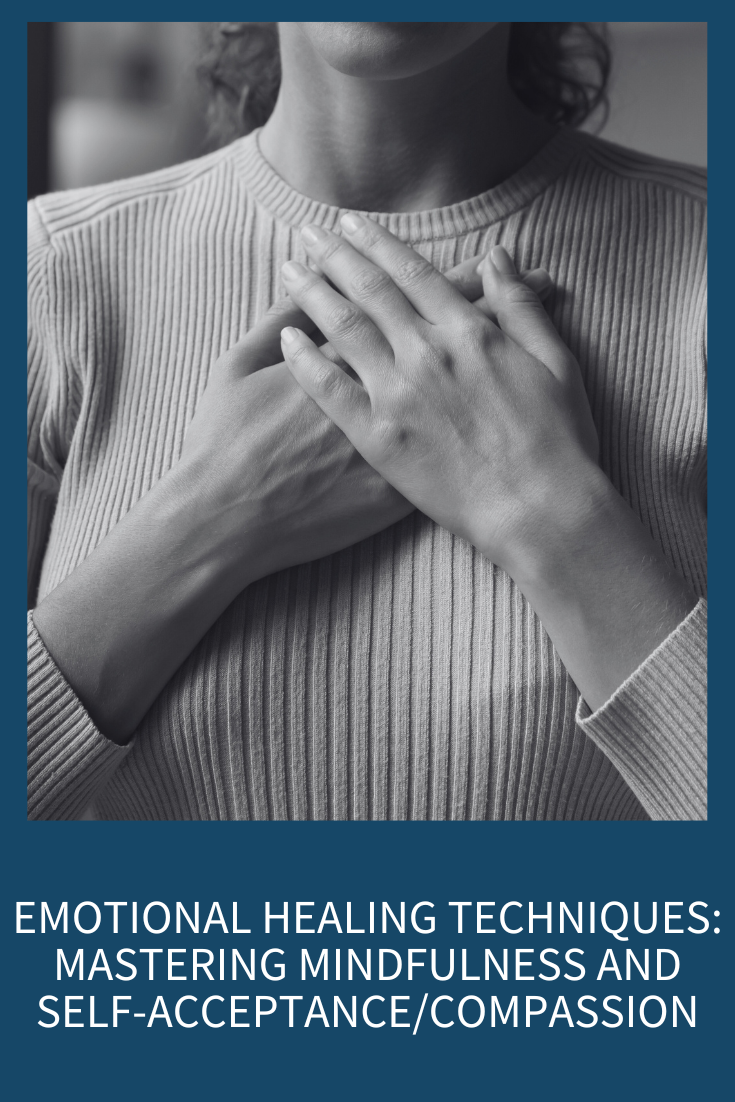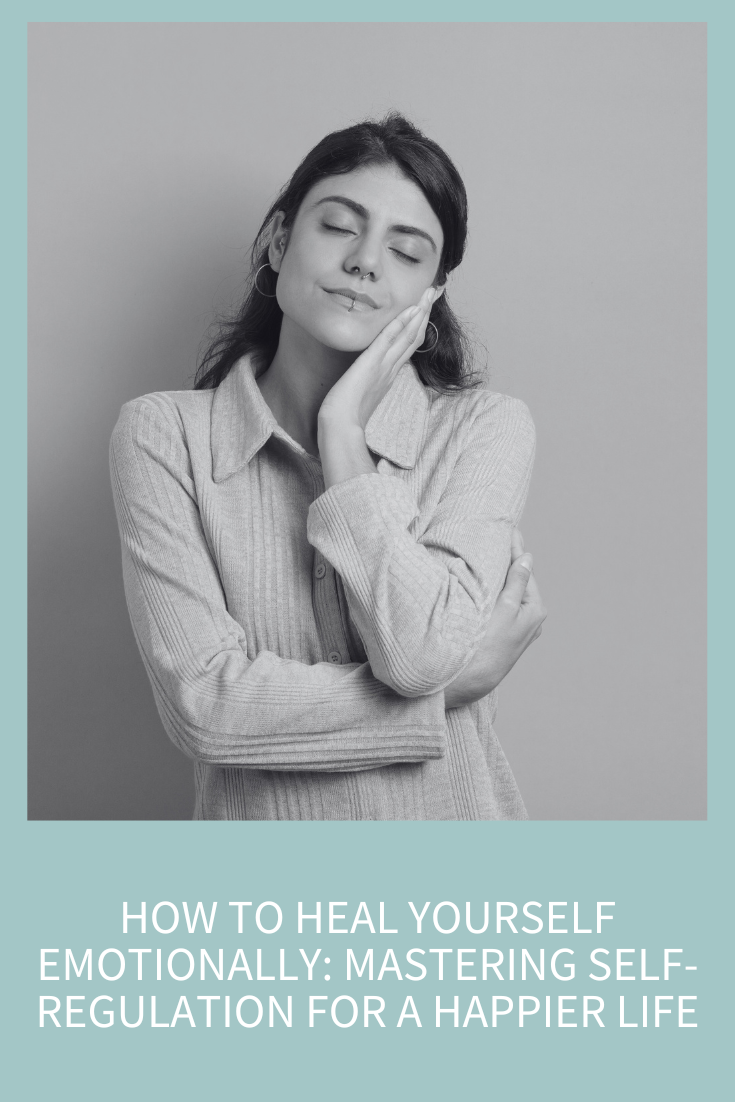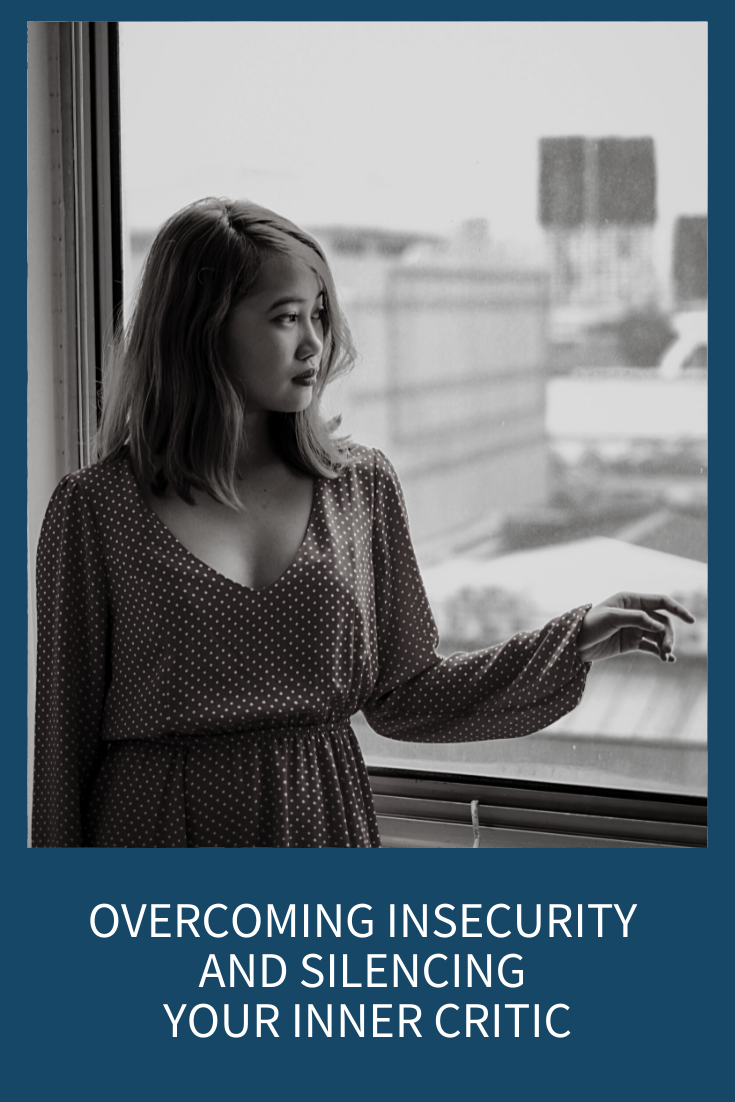
Feeling insecure and not good enough leads to you talking some serious smack to yourself, leaving you feeling anxious, crappy and even jealous. Research shows that your insecurity and all that disapproval inside your head not only hurts your physical and mental health, but it also negatively impacts how both you and your partner feel about your relationship. Overcoming insecurity helps you silence your inner critic and improve all your relationships (really). Today I’m teaching you the seven signs of insecurity and my top five tips to overcoming insecurity and silencing your inner critic.
12-minute read
Prefer to listen to the podcast? Click here.
So, How Do I Know If I’m Insecure?
There are seven major signs of insecurity. If you have only one of these, I’d say you don’t have much to worry about as far as overcoming insecurity goes. However, the more of these you have, the more you should be paying very close attention today!
1. How You Feel
If the predominant feelings in your life and relationships are doubt, anxiety and uncertainty. You constantly worry that you’ve made a wrong choice or that you’re doing something wrong (or that you, yourself are wrong). You just feel different and misunderstood; no one has problems like you or can really understand your unicorn issue. That’s insecurity.
2. Decisions are Your Enemy
Sometimes insecurity shows up as researching options exhaustively. You ask everyone’s opinion and advice before making a decision but then still worry that you chose wrong. You might also find yourself in analysis paralysis and just keep researching and agonizing without ever making a decision.
3. You Need Constant Reassurance
You seek out other people’s support, agreement and assurance (and it’s never enough). You’ll ask the same question over and over until the other person is exasperated or snaps at you (You say you love me, and you do all these things, but do you really?). You don’t feel good about what you’re doing without someone else’s stamp of approval. And you need that stamp over and over.
4. Your Self-Esteem Sucks
You often don’t feel good enough for your partner or friends or feel like an imposter at work. Your confidence is rocky at best, and you feel unworthy often. You quickly dismiss any kudos or compliments and don’t allow yourself to feel good about accomplishments or how you act in the world.
5. You’re a Perfectionist
No matter how well you’ve done with something, it’s never quite good enough or you point out what you could have done better. This usually shows up as being a control freak (or control enthusiast as I like to refer to myself). Deep down, you just don’t feel like who you are (or what you do) is ever enough.
6. You’re Insecurely Attached
I’ve talked a lot about how insecure Attachment Styles negatively affect your relationships and I can tell you that your insecurity likely stems directly from your childhood and how you were parented. If you have an Anxious Attachment style you basically rely on your partner or other people for your emotional well-being. You likely have a fantasy of some perfect relationship that you can never have (since those don’t exist), so you’re left feeling insecure and lonely. Or maybe you have an Avoidant Attachment style where you stay emotionally distant from those around you. While this disengagement can look confident from the outside, it actually stems from insecurity. You distance yourself because you don’t trust that anyone can really meet your needs, so feel insecure in your relationships.
7. You Judge Other People
If you’re judging or criticizing others often, it’s because you’re insecure. Secure people feel no need to tear other people down or worry what other people are doing. They’re not busy pointing out what others are doing wrong because they’re off living their happy, secure lives. That judgmental and critical voice you use with others, gets turned on yourself and that’s where the real pain begins…
Your Critical Inner Voice
All of this insecurity leads to a very critical inner voice. All day long, you’ve got an inner dialogue going in your head, whether you realize it or not. And because you feel the way you think, all that negative thinking is leading to all those unwanted feelings.
In addition to wondering where you left your keys, what you want for dinner and if that weird smell is coming from you, you’re also evaluating and explaining all those things to yourself.
So, wondering where you left your keys might also be accompanied with, “What’s wrong with me? Why am I always losing stuff?” Or it might go way deeper. Maybe when you’re innocently thinking about what you want for dinner, you end up down a pessimistic rabbit hole: “I’m getting too fat, I need to make a healthy dinner and he’s just going to have to like it. Sure, he can eat whatever he wants but I can’t! He never puts my needs first. And he’s starting to lose interest. I can tell. That woman on his team at work is educated and pretty. If I don’t lose weight, I’m going to lose him. I’m going to die alone!”
You can see how quickly this can escalate. But where does all this start? When did you start being so critical of yourself? When did that negative voice in your head start? It started whenever you started to feel insecure.
Now, some folks become insecure later in life. It might be related to some major incident like finding out your husband of 30 years is actually gay and has been living a lie with you all these years. The very bedrock of your life gets upended and you start to question everything you thought was true, leading to insecurity.
But, for most of us, it started in our childhood and the people and circumstances that were around us. And you can add to this other variables including gender, birth order, the environment outside your home, changes in the family at critical points of your childhood and the list goes on and on.
It boils down to how the important people in your life growing up interacted with you and how you perceived what was happening and being said.
Maybe you were a little kid who spilled a glass of juice (as most kids are wont to do) but instead of your parent saying, “Don’t worry, these things happen” maybe you had a parent or sibling say, “You’re such a klutz! What’s wrong with you? You’re always doing stuff like this!”
Maybe you had a parent who was often judging and criticizing you (“Give me that, you’re always doing it the wrong way”). Maybe someone dismissed or demeaned your efforts or wins. Maybe you were compared to an older sibling (“You should quit piano and try something else – you’ll never be as good as your sister”) or another family’s kid (“Why can’t you be more like James?”).
Or maybe you had an absent or neglectful parent who rarely interacted with you. As an adult you might intellectually know that your single mom didn’t spend much time with you because she was out working three jobs to support you, but your kid brain wasn’t able to process so rationally. Your kid brain just felt alone and insecure.
On the other end of the spectrum are anxious, overbearing parents who might have smothered you making you feel like you couldn’t make a decision without their input or making you believe that showing love meant being enmeshed. As an adult, anything less than that feels like someone doesn’t love you, which leads to feeling very insecure and even unlovable.
Events that happen outside the home also contribute to feelings of insecurity and lead to that critical inner voice. It could have been a coach who humiliated you in front of your team or a teacher who embarrassed you by pointing out your mistakes to the class.
Somewhere along the line, you were given feedback or experienced something where you felt wrong or bad on the inside.
According to Brené Brown, insecurity (and eventually that negative inner critic) come from feelings of shame. She describes shame as an “intensely painful feeling or experience of believing that we are flawed and therefore unworthy of love and belonging.” Yup, that’ll make you feel insecure.
In the end, kids need to feel accepted for who they are to feel secure. In their book, Parenting from the Inside Out, Dr. Daniel Siegel and Dr. Mary Hartzell say that kids need to feel safe, seen, soothed and secure. If you remember often feeling lonely, anxious, sad, jealous or angry as a kid, you likely didn’t get those four things consistently. You didn’t feel accepted for who you were as a kid and your insecurity and inner critic developed from there.
Want to learn about unconditional love versus unconditional acceptance? Watch this video:
There’s Nothing Like a Relationship to Make You Feel REALLY Insecure!
I’ve worked with thousands of single people over the years on overcoming insecurity and their self-esteem issues. They’ll do the work and make amazing progress but then get into a relationship, and it all falls apart.
There’s nothing like a relationship to stir up old hurts and resentments and get those insecurity juices flowing! Suddenly that negative inner voice is back in full force! Next thing you know, you’re feeling clingy and desperate or you pull back and sabotage when things get too close.
As you get into or deepen romantic relationships, and your feelings of security and worth are challenged, so your insecure feelings increase and your inner critic starts to get really loud:
- I’m never going to find anyone else who gets me as well as she does.
- He says he loves me, but I don’t believe him.
- If I don’t lose weight, he’s going to cheat on me.
- She’s too good for you.
- I’m better off on my own.
- Why did I always say the wrong thing?!
- If I hadn’t said that last night, she’d still be here.
- If I just hadn’t texted so soon, he wouldn’t have ghosted me.
- I’m too needy. I need to stop asking for things.
My Top 5 Tips to Overcoming Insecurity so You Can Quiet Your Inner Critic
1. Practice Mindfulness
I’m about to get all Jewish-mother-bossy on your ass. If you don’t practice mindfulness, you’re not going to be able to do any of these tips. End of story. If you can’t catch yourself (lovingly) when you’re acting insecure or when your inner critic is in full torpedo mode, how can you expect to change it? I’ve got a ton of resources on mindfulness and self-awareness.
Or watch this quick video on Mindfulness Hacks to get you on the path to overcoming insecurity and silencing that inner critic:
2. Focus on the inside not the outside.
Too many people try to base their feelings of security on external things like a partner, money, job, education or how they look but that’s like trying to fill a funnel. It never works because your feelings of security just leak out the bottom so you’re always looking for more and never feel good in your moments. Also, when your weight fluctuates or your relationship ends, you’re destroyed. You’ve got to start overcoming insecurity by liking yourself regardless of what’s happening “out there.” Roman emperor (and Stoic philosopher), Marcus Aurelius, famously said, “The blazing fire makes flames and brightness out of everything thrown into it.” I recommend starting every day with a daily, centering routine. You can learn about mine here:
3. List a Win Every Single Day
Each night, before you go to bed, think back on your day and identify one win. This doesn’t have to be anything big! Maybe you spoke up at a meeting when you normally keep your mouth closed or maybe you took time out to give yourself a pedicure (because you’re worth it). Note the win, feel it for a moment (let yourself be a little proud of you) and get to sleep.
4. Practice Surety
Being sure and confident consistently is a skill. And, like any other skill, you need to practice to get better at it. When it comes to decisions, set yourself up for success by creating a little system for yourself. Here’s my suggestion:
- Put a time limit on making the decision or change and stick to it.
- Do your own due diligence and research within that time limit.
- If you feel you need other’s opinions, identify just one or two people to speak to but that’s it!
- Implement your new decision, action or strategy by your deadline and do not second guess.
- If you need to, you could also decide how long you’ll try this new decision and then stick to that but don’t second guess along the way!
- Remind yourself that there are no mistakes. “Failure” is good and helpful. It helps you see where you want to go.
5. Collect Compliments
People say nice stuff to us all the time and we dismiss it. This is a big problem because you can’t feel more secure if you’re not noticing all the things that can help you feel secure. It’s going to be uncomfortable in the beginning and your mind will race with all kinds of negative chatter (they don’t really mean that; they’re just being nice; if they really knew me, they wouldn’t say that). It’s your job to ignore the chatter, suspend your disbelief and take in the compliment. There are a few ways you can collect compliments and practice overcoming insecurity:
- Specifically, I want you to put your hand over your heart and say, “Thank you.” You will be amazed at how well this works. The first time I did it (years ago at my therapist’s request), I was shocked when tears sprang up in my eyes! Take in the compliment and feel it as if it’s true, even for a few seconds.
- Keep a bowl or jar of compliments and nice things people have said to you. Ask people, when they come over, to put something in the bowl.
Louise Hay said, “You have been criticizing yourself for years, and it hasn’t worked. Try approving of yourself and see what happens.” It’s time to take action from inspiration not negative motivation. You are worthy of a joyous and connected life and overcoming insecurity is absolutely possible!
If you’re looking to stop your negative self-talk, listen to/read this four-part series, which will help with overcoming insecurity as well:
The Real Reason You Have Negative Thoughts (And 2 Things You Can Do About It)
Finally Stop Having Negative Thoughts
The Secret to Positive Thinking in All Your Relationships
The Simple Hack to Stop Your Negative Thoughts All Day
Resources:
The 5-Step Process to Making Decisions and Getting Out of Analysis Paralysis
8 Ways to Build Your Confidence and Self-Esteem
The 5 Ways Imposter Syndrome is Hurting All Your Relationships
How to Deal with Your Control Issues
How Attached Are You in Your Relationship?

